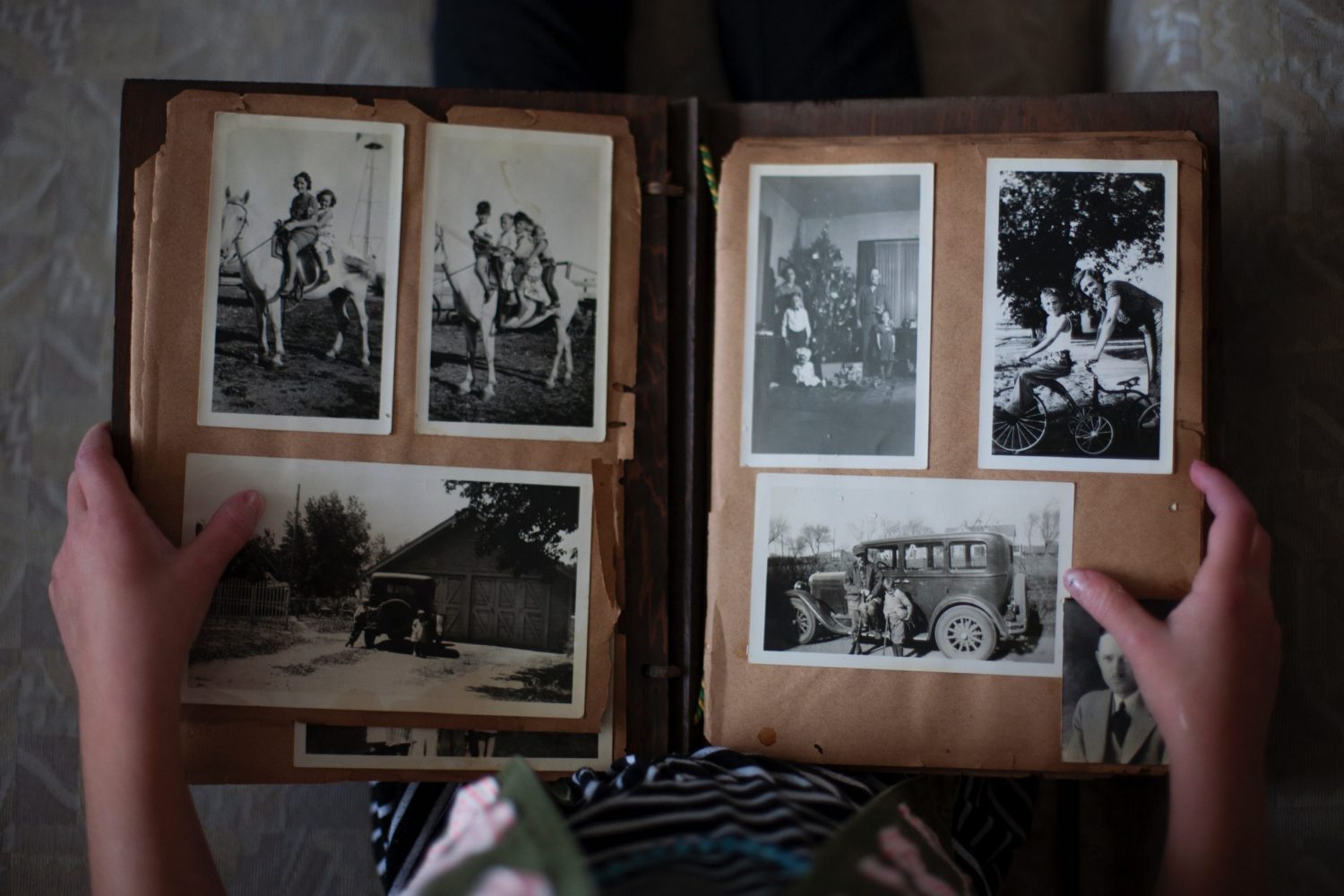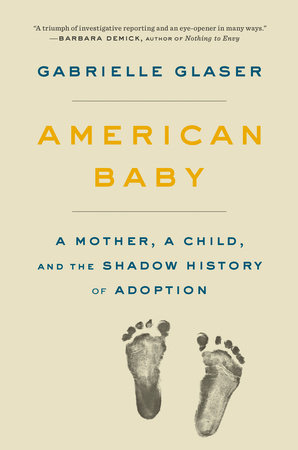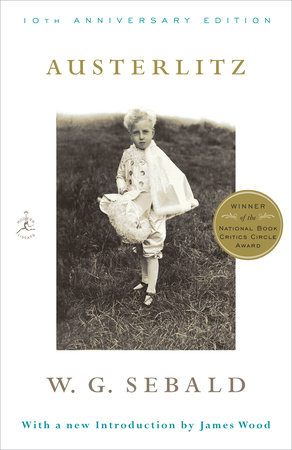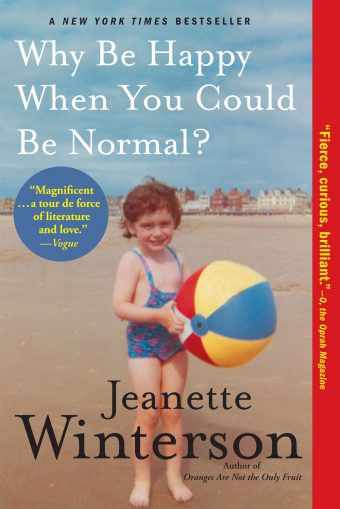If you enjoy reading Electric Literature, join our mailing list! We’ll send you the best of EL each week, and you’ll be the first to know about upcoming submissions periods and virtual events.
The literature I loved as a child was full of orphans: Ballet Shoes, Oliver Twist, The Boxcar Children, Anne of Green Gables, The Secret Garden, Daddy Long Legs. But the parents in these stories were dead or permanently lost. While I knew that my mother had been adopted from a Catholic orphanage by loving parents when she was more than a year old, it didn’t occur to me to wonder about her birth family. At the time, the norm was “closed adoption,” in which records were sealed and adopted children had no access to information about their families of origin. I didn’t know about my mother’s birth family until I stumbled across her biological half-sister on 23andMe. My mother had passed away years before and would never meet her, or know she existed.
In the decades since my mother’s adoption, closed adoption has given way to open adoption, in which adopted children are able to learn their origins and even have contact with their birth families. Open adoption moves away from the secrecy and isolation of past adoption models. Not only is it time for this model of adoption that recognizes and honors both families, but it is also time for stories about adoption that show the experience in all its complexity.
Fortunately, increasing openness about adoption in our public discourse has made it to the bookshelves, moving us beyond the limits of my childhood library. The landscape of adoption literature for adults continues to expand: open adoption and transracial adoption are represented and explored in novels and memoirs from varying perspectives, and books and documentaries further uncover America’s troubled past with closed adoption and coercion. In a time when genetic testing disrupts the long history of secrecy in closed adoptions while the for-profit adoption industry continues to thrive, the following books offer much-needed perspectives and narratives to the conversation. On the page, we have finally moved away from the literary trope of the orphan who needs to be saved by rich benefactors.
American Baby: A Mother, A Child, and the Shadow History of Adoption by Gabrielle Glaser
If you streamed Taken at Birth on Hulu, you caught a glimpse of one of the appalling adoption rackets of the mid-20th century. Gabrielle Glaser’s book uncovers the larger landscape of 20th century America’s coercive closed adoptions, steeped in secrecy and populated by homes for unwed mothers, cruel experiments on infants, and corrupt agencies.
At the center of the book is the story of David Rosenberg and his birth mother, Margaret Erle, who, as a teenager, was forced to sign away her rights to her baby born “out of wedlock.” There’s a twist in this story: the father was the man Margaret Erle loved and married and raised other children with. Of course, their family model doesn’t make their loss at the center of the story any more or less significant than that of the other 3 million women that Glaser estimates were pushed through a system that forced adoption and sealed the records in the decade post-World War II.
Glaser uses this compelling story of separation, and reunion, to dig into American attitudes about family and sexuality, as well as the economic forces that shaped a country and an exploitive adoption system that carries on, complete with the continuation of closed records in many states and situations. Unlike my mother, who never had the opportunity to meet her half-siblings who I discovered after her death from cancer, David Rosenberg was able to meet his birth family weeks before his death. This compelling narrative brings awareness to the devastating ramifications of the American adoption system.

The Boy in the Field by Margot Livesey
Livesey’s latest novel opens with three siblings finding a dead body. Wearing matching school uniforms, they move together through the scene almost as if they were protagonists of an early children’s adventure novel. These are not, however, parentless children. As the novel moves between their three perspectives we learn how they observe, and eventually process, this scene of death.
In this triptych of a bildungsroman, the adolescent siblings discover their sexuality, origins, and selves in different ways: the youngest, Duncan, who is adopted, sets out on a quest to find and meet his birth mother. We move between their perspectives seamlessly from chapter to chapter with the unity of siblings whose external daily worlds are united. When Duncan states his attention to find his birth mother, his sister asks if they will still be his family, and she, his sister. Duncan responds, “How could that change? You’re the people I can draw in my sleep.” Duncan’s quest does not displace his sense of family, but expands it. This corner of the novel reflects complex realities of adoption as part of coming of age, and depicts relationships between siblings of built families. Duncan’s journey is distinctly his own even as he is surrounded by his family.
Luster by Raven Leilani
A white woman is so at a loss as to how to raise her newly adopted Black daughter that she allows her husband’s lover, who he met over the internet, to move in. Of course, that’s not the whole story, but this angle of the narrative is part of the underlying sharp humor in Leilani’s brilliant first novel.
At the center of the novel is Edie, a 23-year-old aspiring Black artist working in publishing and having an affair with Eric. Edie ends up in Eric’s family’s household in a strange turn of events, but part of what holds her there is pre-teen Akila, whose needs she recognizes. The heart of this novel is not the triad of man, wife, lover, nor is it what is called the adoption triad of birth parents, adoptive parents, and child. It does, however, develop the complex relationship between the two adult women, both of whom Akila needs in some way.
As we follow Edie through her emergence as an artist, we also see a brutal view of transracial adoption from the distinctive angle of a Black woman entering a household in which the white mother, Rebecca, is struggling to know how to care for her Black daughter; the daughter is fighting to survive and maintain the stability of her new home; and, most tellingly, the husband engages in tender sex with his wife while he is violent with his Black lover as he raises a Black daughter. Leilani’s debut is astoundingly unique and unflinching.
Austerlitz by W.G. Sebald
One of the discoveries I made through 23andMe was that my mother—who the nuns at the orphanage said was the child of two Irish Catholics—was of Ashkenazi Jewish origin. My mother had always suspected that she was of Eastern European heritage, despite the narrative she was told. I think of this when returning to W.G. Sebald’s beloved novel of searching, Austerlitz, with its grainy photographs and travelogue feel.
What does it mean to have some deep knowledge of who you are, some early memories, conscious or more embodied, that no one can confirm or explain to you? In Sebald’s novel, the narrator tells us the story of Austerlitz, an architect who, at the age of four, was evacuated in 1939 from then Czechoslovakia to the U.K. by Kindertransport to live with a preacher and his wife in Wales. Austerlitz tells the narrator:
“Sometimes it was as if I were in a dream and trying to perceive reality; then again I felt as if an invisible twin brother were walking beside me, the reverse of a shadow, so to speak.”
He learns of his adoption, and his original identity, not from his adoptive parents, but from a schoolmaster revealing his original name, which he is told he must use on his exams. The name, like everything about his past, is strange to him. Austerlitz’s long search for his own history and origins opens doors to larger questions of identity and the impact of buried histories and memories. Note: at least 10,000 children escaped the Holocaust in the Kindertransport program.
Why Be Happy When You Can Be Normal? by Jeanette Winterson
“The Devil lead us to the wrong crib.” Jeanette Winterson’s adoptive mother’s angry words open her 2012 memoir, which echoes and expands upon Winterson’s 1985 debut novel Oranges Are Not the Only Fruit. In the novel, we were first introduced to the character of Jeanette, a girl adopted into an English Pentecostal family; this coming out and coming of age story made room for a curious and funny protagonist, an adoptee whose coming out leads to exorcisms and beatings via her adoptive mother.
Winterson’s memoir addresses her own story directly and jumps to her adult search for her birth mother, complete with infuriating red tape and unsympathetic judges and surprising turns that leave her considering the realities for both mothers. It is hard not to think of Austerlitz when reading the following line from Winterson: “where you are born—what you are born into, the place, the history of the place, how that history mates with your own—stamps who you are.”
This story of a closed adoption provides some answers, including the discovery that it was only “Mrs. Winterson,” not Winterson’s birth mother, who kept things a secret. Like with Sebald and his fictional Austerlitz, Winterson shows the power of the small details of discovery, such as when she learns her birth parents’ names:
“I read the names. Tears then. I don’t know why. Why do we cry? The Names read like runes. Written on the body is a code only visible in certain lights.” This book tells the story of one of many adoptees who have gone searching and decoding.
All You Can Ever Know by Nicole Chung
Chung’s popular memoir brings to the surface another major shift in approaches to adoption: the shifting conversations about transracial adoption. Or perhaps I should say the shift toward conversations about transracial adoption. Through her own story, Chung demonstrates the harmful impact of the “race blind” approach to parenting that adoptive parents were given over generations. Her parents follow the advice of professionals and ignore her Korean heritage; in return, she protects them by not revealing to them the racism she experiences.
Her story, told from the vantage point of Chung’s own entry into motherhood, makes room for the complexity of the adoption triad. There are no easy answers or relationships. She tracks down her divorced birth parents and her birth sister, who has been told she is dead, and she begins to piece together the history that led to her adoption, while she also grapples with the impact of dysfunctional models of transracial adoption. The result is a book that is moving and honest and that makes room for the humanity of all involved. Chung’s perspective as an expectant and new mother contributes another much-needed vantage, that of adoptees as they prepare for parenting while their own birth stories are unknown to them.
Detransition, Baby by Torrey Peters
At the center of Torrey Peter’s novel are Reese, a trans woman who desperately wants to be a mother, Katrina, a pregnant cisgender woman who has lost a previous baby, and Ames, who has detransitioned after having previously transitioned and lived as Reese’s former girlfriend, Amy. While adoption only appears in the backstory of Ames and Reese’s relationship, it is integral to their story and highlights the barriers to adoption for trans women. Their trip to an informational meeting about adoption, inspired by the rumor that a couple of trans men have been able to adopt together, is a searing scene in the novel.
Throughout the novel, Peters shows the painful consequences—both psychological and quantifiable—when gender is falsely defined by fertility and when biological parenthood is prioritized while families are formed in many ways. What makes a parent? And what happens when others have the power to decide when and how you may become a parent? While some states and agencies clearly make space for cisgender single parents and cisgender gay and lesbian parents, Detransition, Baby serves as a reminder (to those who need it) that trans adoption is barely even part of the larger conversation about adoption yet. Hopefully this novel will help change that.







